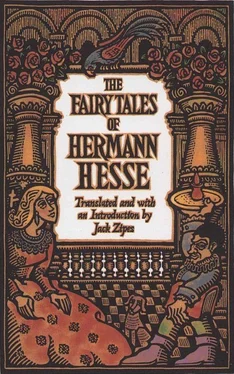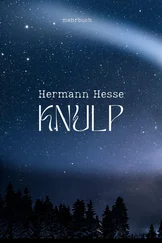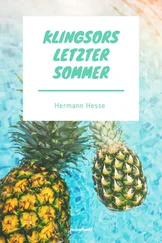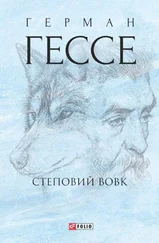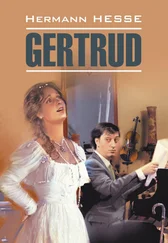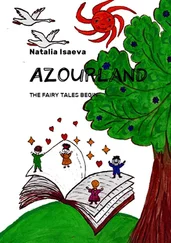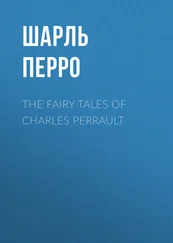Hermann Hesse - The Fairy Tales of Hermann Hesse
Здесь есть возможность читать онлайн «Hermann Hesse - The Fairy Tales of Hermann Hesse» весь текст электронной книги совершенно бесплатно (целиком полную версию без сокращений). В некоторых случаях можно слушать аудио, скачать через торрент в формате fb2 и присутствует краткое содержание. Год выпуска: 1995, ISBN: 1995, Издательство: Bantam Books, Жанр: Классическая проза, Сказка, на английском языке. Описание произведения, (предисловие) а так же отзывы посетителей доступны на портале библиотеки ЛибКат.
- Название:The Fairy Tales of Hermann Hesse
- Автор:
- Издательство:Bantam Books
- Жанр:
- Год:1995
- ISBN:9780553377767
- Рейтинг книги:5 / 5. Голосов: 1
-
Избранное:Добавить в избранное
- Отзывы:
-
Ваша оценка:
- 100
- 1
- 2
- 3
- 4
- 5
The Fairy Tales of Hermann Hesse: краткое содержание, описание и аннотация
Предлагаем к чтению аннотацию, описание, краткое содержание или предисловие (зависит от того, что написал сам автор книги «The Fairy Tales of Hermann Hesse»). Если вы не нашли необходимую информацию о книге — напишите в комментариях, мы постараемся отыскать её.
The Fairy Tales of Hermann Hesse — читать онлайн бесплатно полную книгу (весь текст) целиком
Ниже представлен текст книги, разбитый по страницам. Система сохранения места последней прочитанной страницы, позволяет с удобством читать онлайн бесплатно книгу «The Fairy Tales of Hermann Hesse», без необходимости каждый раз заново искать на чём Вы остановились. Поставьте закладку, и сможете в любой момент перейти на страницу, на которой закончили чтение.
Интервал:
Закладка:
“Iris,” he said to her, “dear Iris, if only the world had been differently arranged! If there were nothing at all but a beautiful, gentle world with flowers, thoughts, and music, then I would wish for nothing but to be with you my entire life, to listen to your stories, and to share in your thoughts. Just your name makes me feel good. Iris is a wonderful name. But I have no idea what it reminds me of.”
“You certainly know,” she responded, “that the blue flag flower is called iris.”
“Yes,” he responded with a feeling of discomfort. “Of course, I know it, and just that in itself is very beautiful. But whenever I say your name, it seems to remind me of something else. I don’t know what it is, but it’s as if it were connected to some very deep, distant, and important memories, and yet I don’t know what they could be and haven’t found the slightest clue.”
Iris smiled at him as he stood there helplessly, rubbing his forehead with his hand.
“That’s how I feel,” she said to Anselm in her voice that was as light as a bird, “whenever I smell a flower. Then my heart tells me each time that a memory of something extremely beautiful and precious is connected to the fragrance, something that had been mine long ago and became lost. It’s also the same with music, and sometimes with poems — all of a sudden something flashes, just for a moment, as if all at once I saw my lost home below in a valley, and then it immediately disappears and is forgotten. Dear Anselm, I believe that we are on earth for this purpose, for contemplating and searching and listening for lost remote sounds, and our true home lies behind them.”
“How beautifully you put all this!” Anselm complimented her, and he felt something stir in his own breast almost painfully, as if a hidden compass there were pointing persistently to its distant goal.
But that goal was completely different from the goal he sought, and this hurt. Was it worthy of him to gamble away his life in dreams by chasing after pretty fairy tales?
One day after Anselm had returned from a lonely journey, he found the stuffy atmosphere in his barren study to be so cold and oppressive that he rushed over to his friend’s house and asked the beautiful Iris for her hand.
“Iris,” he said to her, “I don’t want to continue living like this. You’ve always been my good friend. I must tell you everything. I must have a wife, otherwise I feel my life will be empty and without meaning. And whom else should I wish for my wife but you, my dear flower? Will you accept, Iris? You’ll have flowers, as many as I can find. You’ll have the most beautiful garden. Will you come and live with me?”
Iris looked at him for a long time, calmly and straight into his eyes. She did not smile or blush as she answered him with a firm voice.
“Anselm, I’m not astonished by your proposal. I love you, although I had never thought of becoming your wife. But look, my friend, I’d make great demands on the man I marry. I’d make greater demands than most women make. You’ve offered me flowers, and you mean well. But I can live without flowers and also without music. I could do without all of this and much more if I had to. However, there’s one thing I can’t and won’t do without: I can never live, not even just for a day, if the music in my heart is not at the core of everything I do. If I am to live with a man, then it must be one whose inner music harmonizes perfectly in a delicate balance with mine, and his desire must be to make his own music pure so that it will blend nicely with mine. Can you do that, my friend? If you do, you’ll probably not achieve fame and reap any more honors. Your house will be quiet, and the wrinkles that I’ve seen on your forehead for many years will have to be erased. Oh, Anselm, it won’t work. Look, you’re one of those who must study so that more and more wrinkles appear on your forehead, and you must constantly create more and new worries for yourself. And whatever I may mean and am, well, you may certainly love and find it pretty, but it is merely a pretty toy for you, as it is for most people. Oh, listen to me carefully: Everything that you now consider a toy is for me life itself and would have to be the same for you, and everything about which you worry and for which you strive, I consider a toy and not worth living for. I’m not going to change, Anselm, for I live according to a law that is inside me. Will you be able to change? And you would have to become completely different, if I were to become your wife.”
Anselm stood and could not utter a word, for he was startled by her willpower, which he had thought was weak and whimsical. He was silent, and without realizing it, he crushed a flower he had picked up from the table with his shaking hand.
When Iris gently took the flower out of his hand, it felt in his heart like a severe reproach, but then she suddenly smiled brightly and lovingly as though she had unexpectedly found a way out of the darkness.
“I have an idea,” she said softly, and blushed as she spoke. “You’ll find it strange. It will seem like a whim to you. But it’s not a whim. Do you want to hear it? And will you agree to follow it and allow it to decide everything between you and me?”
Without understanding her, Anselm glanced at Iris with a worried look in his pale features. Her smile compelled him to trust her, and he said yes.
“I’d like to set a task for you,” Iris said, and she became serious again very quickly.
“Very well, do it. It’s your right,” her friend conceded.
“I’m serious about this,” she said. “And it is my final word. Will you accept it as it comes straight from my heart and not haggle and bargain about it, even if you don’t understand it right away?”
Anselm promised. Then she stood up and offered him her hand as she said, “You’ve said to me many times that whenever you speak my name, it reminds you of something that you’ve forgotten, something that was once very important and holy to you. That’s a sign, Anselm, and that’s what has drawn you to me all these years. I also believe that you’ve lost and forgotten something important and holy in your soul that must be wakened again before you can find your happiness and attain your destiny. Farewell, Anselm! I’m giving you my hand and asking you to go and find whatever it is in your memory that is linked to my name. On the day that you rediscover it, I’ll become your wife and go with you wherever you want, and your desires will be my very own.”
Anselm was dismayed and confused and wanted to interrupt her and reproach her for making such a whimsical demand. But with one clear look, she admonished him and reminded him of his promise, and he kept quiet. He took her hand with lowered eyes, pressed it to his lips, and departed.
Anselm had undertaken and completed many tasks in his life, but none had been as strange and important and thus as discouraging as this one. Day after day he ran around and thought about it until he became tired, and time and again he would arrive at a point when he cursed the entire quest and angrily and desperately tried to dismiss it from his mind as the whim of a female. But then something deep within him would oppose this, a very slight mysterious pain, a very soft, barely audible warning. This faint voice in his own heart conceded that Iris was right, and it made the same demand that she did.
But this task was much too difficult for the learned man. He was supposed to remember something that he had long since forgotten. He was supposed to rediscover a single golden thread from the cobweb of buried years. He was supposed to grasp something with his hands and bring it to his beloved, something that was nothing but a drifting bird call, something like a pleasant or sad feeling that one has while listening to music, something thinner, more fleeting and more ethereal than an idea, something more transitory than a nocturnal dream, more shapeless than a morning mist.
Читать дальшеИнтервал:
Закладка:
Похожие книги на «The Fairy Tales of Hermann Hesse»
Представляем Вашему вниманию похожие книги на «The Fairy Tales of Hermann Hesse» списком для выбора. Мы отобрали схожую по названию и смыслу литературу в надежде предоставить читателям больше вариантов отыскать новые, интересные, ещё непрочитанные произведения.
Обсуждение, отзывы о книге «The Fairy Tales of Hermann Hesse» и просто собственные мнения читателей. Оставьте ваши комментарии, напишите, что Вы думаете о произведении, его смысле или главных героях. Укажите что конкретно понравилось, а что нет, и почему Вы так считаете.
